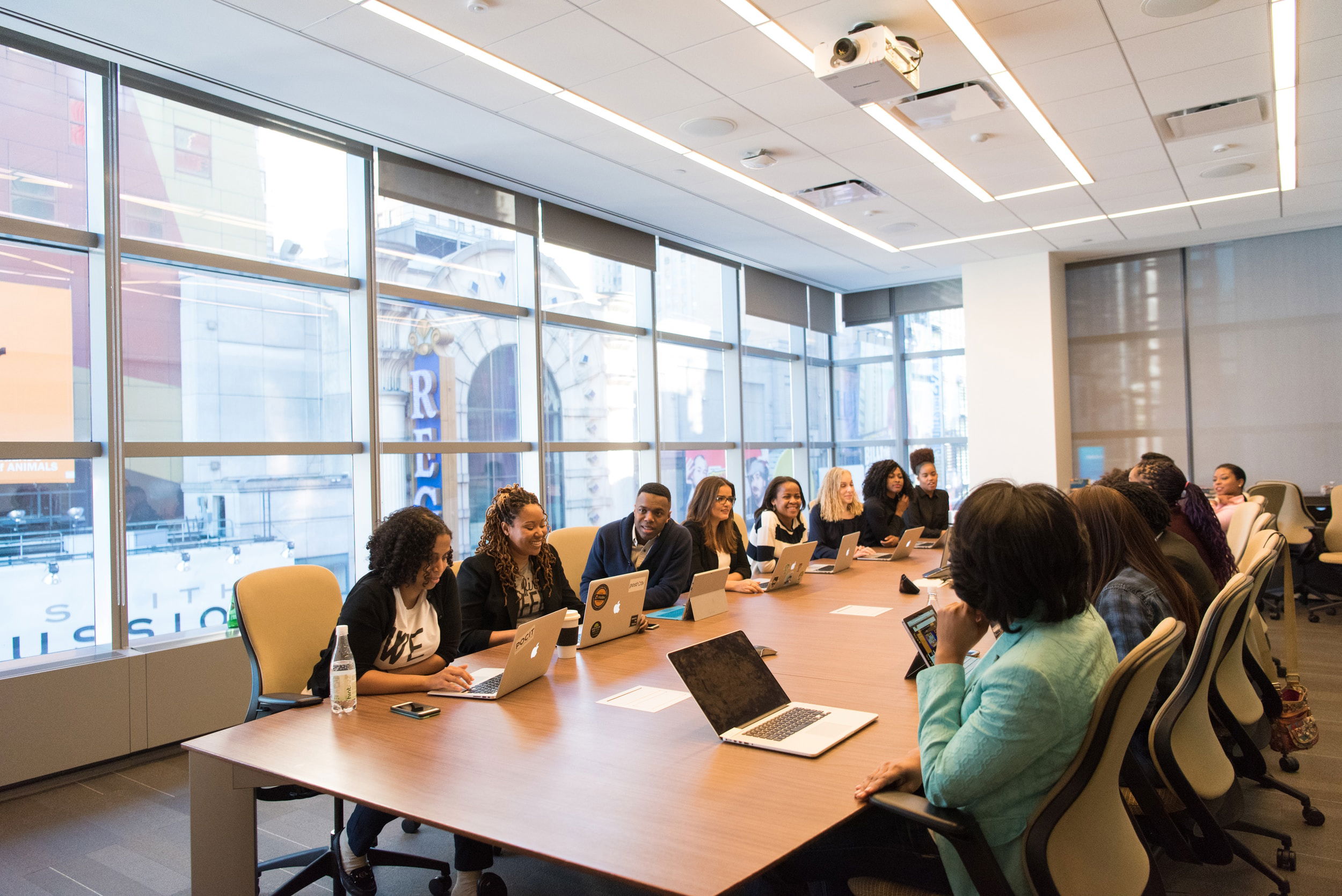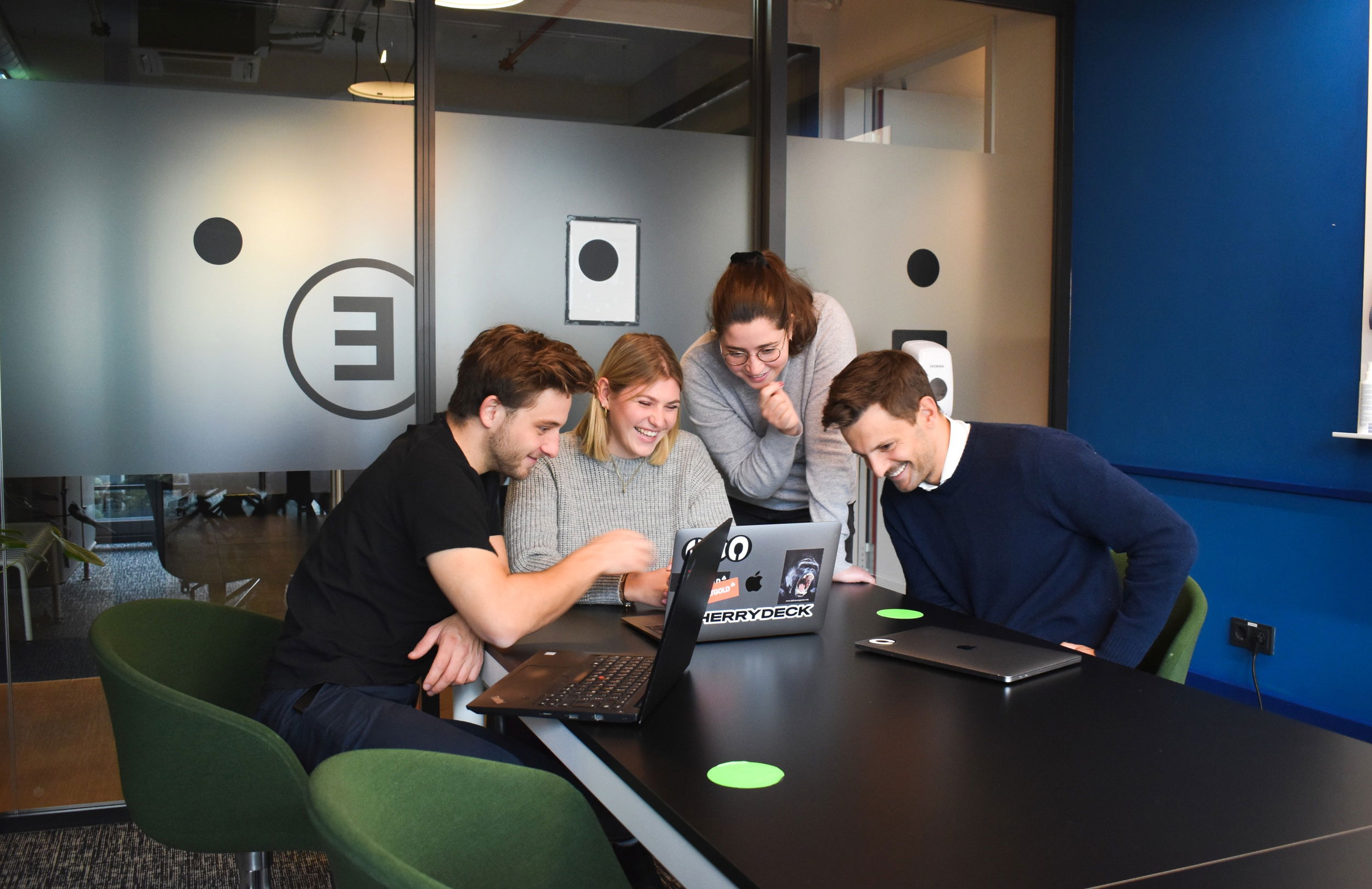The New Workplace
As Millennials and Gen Z increasingly dominate the workforce, they are bringing with them a set of values and expectations that challenge many traditional workplace norms. Their approach often includes a rejection of common workplace practices. This shift not only reflects their unique generational experiences and technological fluency but also a broader desire for workplaces that better align with modern societal values and lifestyles. As a result, companies are finding themselves at a crossroads, needing to adapt to these evolving expectations or risk becoming obsolete in the eyes of the emerging workforce.
Here are 5 new practices Millennials and Gen Z Promote...
1. Modern, Progressive, Enriching Endeavors
Younger workers often reject linear career paths, favoring opportunities that offer a variety of roles and learning experiences. They are more likely to change jobs or industries to find work that aligns with their values and passions. This approach challenges the traditional ladder of climbing up in one field or company, suggesting that a fulfilling career can be dynamic and multifaceted. Employers are responding by offering more cross-functional roles and career development opportunities.
Younger workers argue that skills and practical experience should outweigh the importance of formal degrees in many fields. They support alternative education paths, such as online courses, bootcamps, and self-taught skills, as valid credentials for employment. This challenges the traditional emphasis on degrees as the primary qualification for professional roles. More companies are now considering candidates based on their skills and potential rather than just their educational background.

2. Positive Work Environments
Millennials and Gen Z are increasingly vocal about their refusal to tolerate toxic work environments, which can include everything from bullying and discrimination to chronic stress and unrealistic performance demands. They prioritize mental health and well-being and are more likely than previous generations to leave jobs where the work culture is harmful. Younger workers advocate for transparent communication and inclusive practices that help to identify and address toxicity. As a result, companies are becoming more proactive in creating positive work cultures, implementing stricter policies against harassment, and providing training to foster respect and understanding among all employees.
Younger generations view job loyalty differently, focusing on what they can learn and contribute during their tenure rather than the duration of employment. They seek employers who invest in their growth and are willing to switch jobs if their needs for development are not met. This shift challenges the idea of spending decades with a single employer as a measure of success. Employers are adapting by focusing on employee engagement and retention strategies that emphasize personal and professional growth.
Younger employees seek continuous feedback to understand their performance and areas for improvement. They prefer regular check-ins and constructive critiques over the traditional annual review process. This approach allows for ongoing personal development and quicker adjustments to work practices. Many organizations are revamping their performance review processes to be more frequent and interactive.
Millennials and Gen Z are breaking the stigma around discussing mental health in the workplace. They advocate for open conversations and supportive policies that address mental well-being. Recognizing the impact of mental health on overall productivity, they push for resources and benefits that support psychological well-being. Companies are beginning to implement more comprehensive mental health programs and training for managers.

3.Value and Respect for People
Millennials and Gen Z value flexibility over strict working hours, preferring to align their work schedules with their personal productivity peaks. They often seek roles that allow for asynchronous work, where the focus is on outcomes rather than the time spent in the office. This flexibility is believed to enhance job satisfaction and improve overall work-life balance. Employers are increasingly accommodating these preferences through flexible hours or results-oriented work environments.
Younger generations view strict dress codes as outdated and prefer to dress more casually and comfortably at work. They argue that creativity and productivity are not influenced by attire, advocating for a shift towards ‘dress for your day’ policies. This shift is not just about comfort but also about expressing individuality and fostering a more relaxed workplace atmosphere. Companies are adapting by loosening dress codes to maintain a positive company culture.
Millennials and Gen Z prefer working in environments where hierarchies are minimized, advocating for a collaborative and inclusive workplace. They value transparency and open communication, where ideas can flow freely across all levels of the organization. This preference is driving a shift towards flatter organizational structures where leadership is more accessible. Companies that embrace this change often find it fosters innovation and team cohesion.
Rather than planning for a traditional retirement at a fixed age, younger generations envision a more flexible approach to ending their careers. They are interested in options like phased retirement, freelance work, or shifting to less demanding roles as they age. This reflects their desire for continued engagement and adaptability in later life stages. Financial planning services and employers are adapting to these preferences with more varied retirement planning options.

4. Digital Connections
The rise of remote work has led Millennials and Gen Z to question the need for constant physical presence in an office. They value the ability to work from anywhere, which can lead to increased job satisfaction and access to a wider range of job opportunities. This preference challenges traditional norms about office work and has been accelerated by the global shift toward remote work due to the pandemic. Companies are increasingly offering remote or hybrid work models in response.
Millennials and Gen Z emphasize the importance of a balanced lifestyle where personal life is not overshadowed by work commitments. They seek employment that supports their interests and responsibilities outside of work, from family to hobbies. This perspective challenges the notion that professional success is the ultimate priority. Employers are responding by offering more flexible working conditions and recognizing the importance of employee well-being.
Gen Z and Millennials prefer a workplace where power distance is minimized, and all employees feel empowered to share their opinions. They value leaders who are approachable and who foster a sense of teamwork and community. This preference challenges traditional corporate cultures that are characterized by significant gaps between senior management and other employees. Organizations are responding by training leaders to be more inclusive and open in their management style.
Younger generations are advocates for digital solutions that streamline workflow and reduce environmental impact. They push for the adoption of electronic documents and digital tools that enhance efficiency and sustainability. This shift away from paper-based systems is not only about convenience but also about aligning with their environmental values. More businesses are adopting green policies and digital-first strategies in response.
The younger workforce questions the relevance and fairness of standardized testing in the hiring process. They advocate for assessments that are more reflective of actual job skills and the work environment. This skepticism is leading to a reevaluation of hiring practices, with an increasing focus on practical assessments and holistic review processes. Companies are updating their recruitment strategies to attract and evaluate talent more effectively.
Informal communication styles are often preferred by younger generations, who find them more authentic and engaging. They challenge the need for overly formal email and meeting protocols, advocating for communication that fosters easier and faster exchanges. This preference for informality is seen as a way to break down barriers and encourage more spontaneous collaboration. Organizations are adapting by simplifying their communication practices to make them more direct and accessible.

5. Work-Life Balance
Millennials and Gen Z reject the notion that long hours are synonymous with productivity and dedication. They advocate for efficiency and smarter work practices that allow for a healthy work-life balance. This challenges the traditional glorification of overwork and is leading to more focus on results rather than hours worked. Progressive companies are recognizing the value of promoting a balance that prevents burnout and maintains productivity.
Millennials and Gen Z advocate for clear distinctions between work and personal life, challenging the norm of being available 24/7. They push back against the expectation of responding to work communications outside of business hours, emphasizing the importance of downtime for mental health. By setting boundaries, they aim to prevent burnout and promote long-term job engagement. Organizations are slowly recognizing these boundaries as essential for sustainable productivity.
The effectiveness of remote work during the pandemic has proven that work-from-home arrangements can be highly productive. Millennials and Gen Z advocate for the normalization of remote work, citing benefits like reduced commuting time and greater flexibility. This challenges traditional views that equate physical presence with productivity. Companies are increasingly incorporating remote work into their long-term operational strategies.
Younger workers value flexibility in their roles, preferring to develop a broad range of skills rather than being confined to a single job description. They seek opportunities to contribute across different areas of their organizations, which can lead to more innovative and adaptable work environments. This challenges the traditional notion of fixed job roles and encourages a more dynamic approach to workforce development. Companies are becoming more open to role fluidity to harness the full potential of their employees.
Emotional intelligence, communication, and adaptability are highly valued by Millennials and Gen Z. They argue that these skills are crucial for modern workplaces, challenging the traditional focus on technical abilities alone. Recognizing the importance of these competencies, they advocate for their inclusion in training and evaluation. Progressive companies are adjusting their hiring criteria and development programs to emphasize these soft skills.

Significant Shifts
The influence of Millennials and Gen Z on workplace norms represents a significant shift in the landscape of work, one that emphasizes personal fulfillment and organizational flexibility. As companies adapt to these changes, they not only create environments that are more appealing to younger employees but also benefit from increased innovation and productivity. This evolution challenges older models but also opens up opportunities for more sustainable and engaging workplace cultures. Ultimately, embracing these changes can lead to a more dynamic, inclusive, and forward-thinking workplace that attracts and retains the best talent across generations.